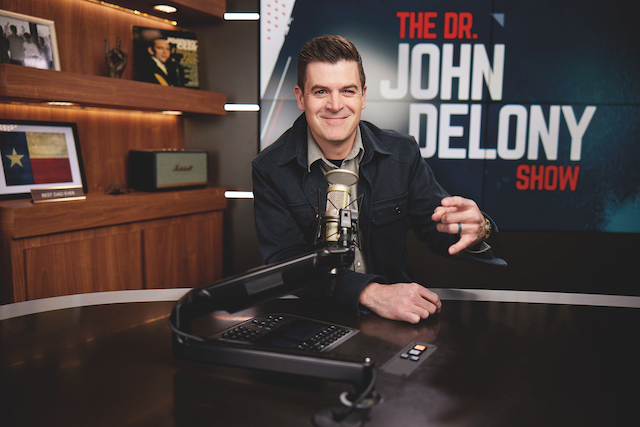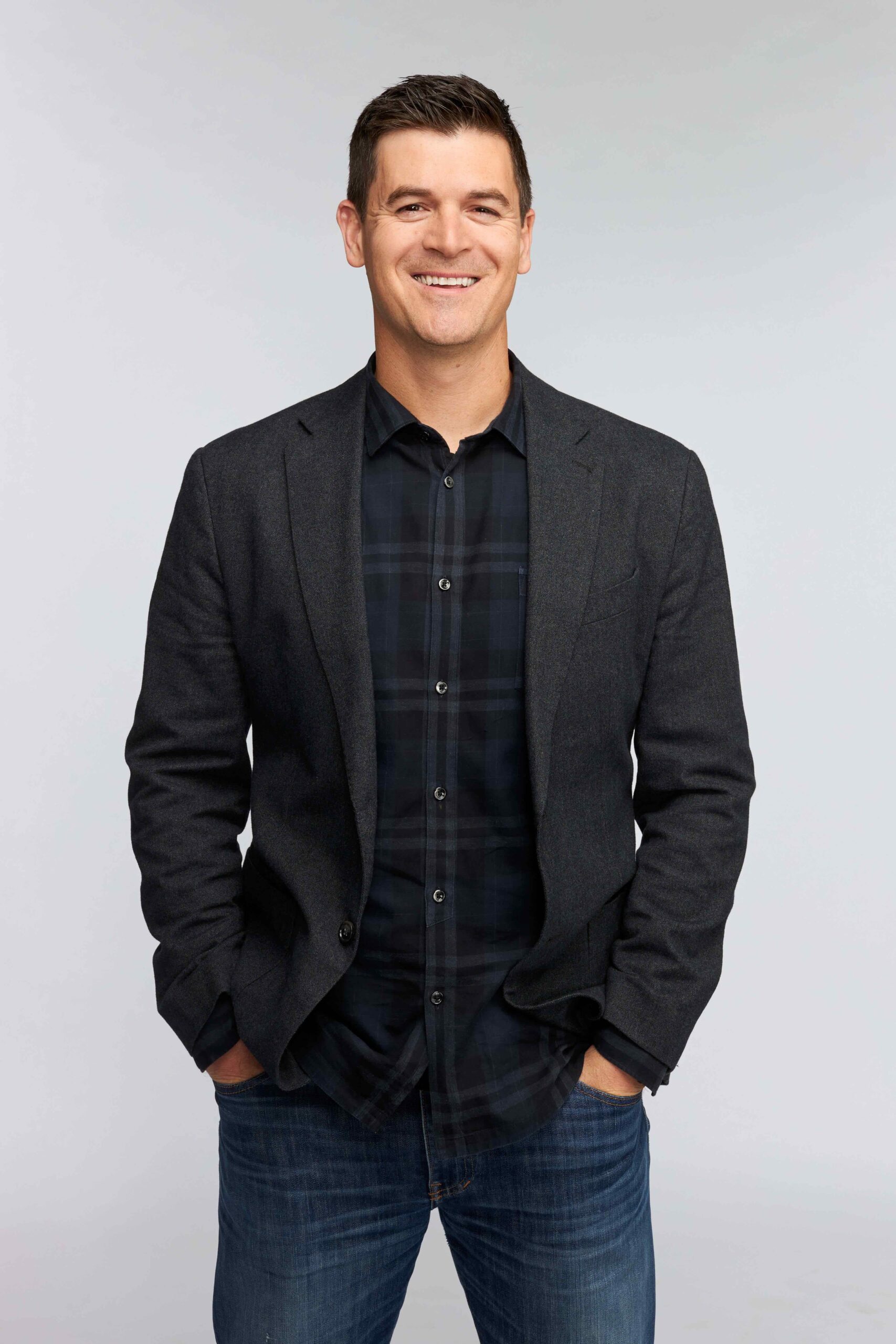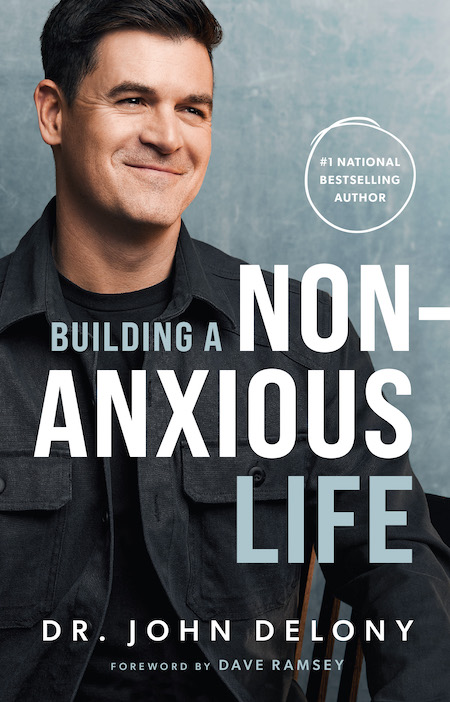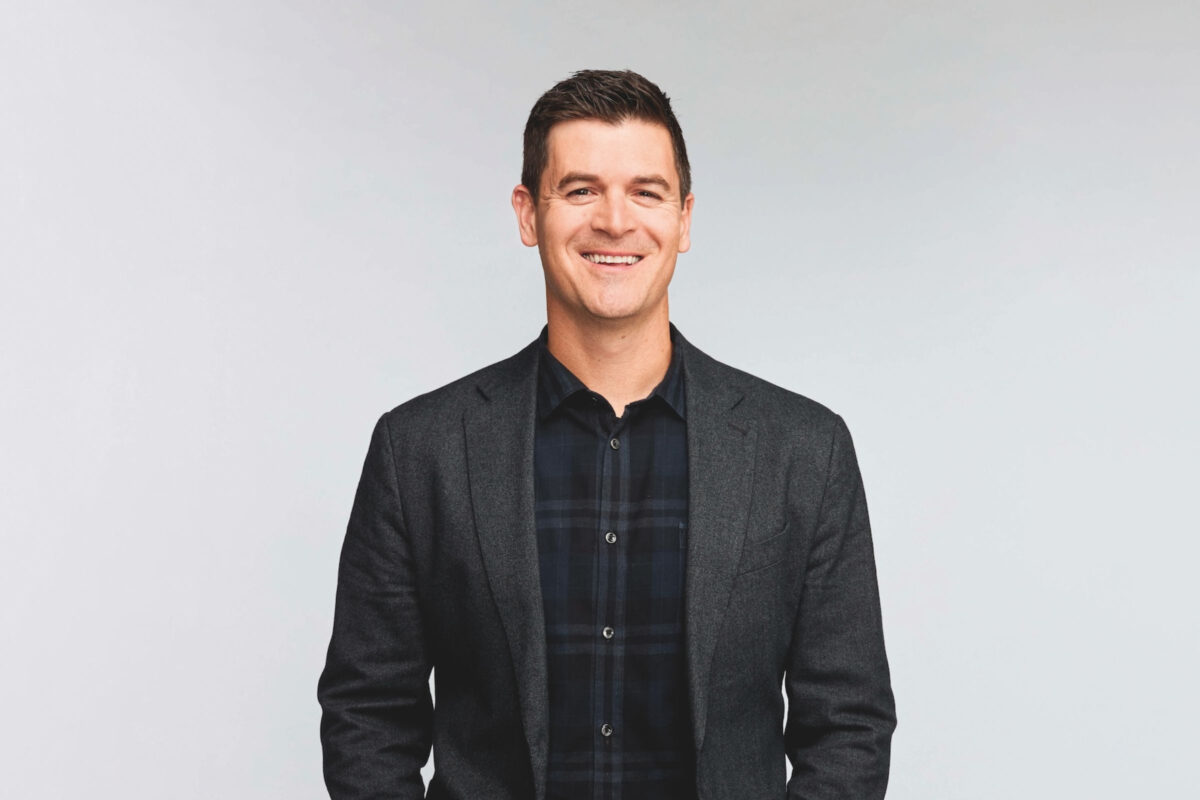Over the years, John Delony has found his calling in “sitting with people,” whether that’s counseling distraught students, comforting grieving parents, or advising brokenhearted husbands or wives.
“I want people’s days to be a little more peaceful after they’ve interacted with me than before,” he said.
On “The Dr. John Delony Show,” which reaches 200,000 weekly listeners, he offers advice to callers in difficult situations: the man who has secretly cheated on his wife for years; the middle-aged woman who’s never had a real friend. Mr. Delony listens deeply. But he also interrupts people and dishes out, as needed, tough love or encouragement. The advice is usually simple. Putting it into action is usually hard—but then again, so is taking no action at all.
“I’m probably the most hopeful person you’re going to find,” Mr. Delony said. He has counseled parents who have lost their children in tragic circumstances—and witnessed their resilience and growth as they later helped bereaved parents in similar situations.
“We spent so many years talking about post-traumatic stress that we have completely not talked about the other side of that teeter-totter, which is post-traumatic growth—the extraordinary things people do on the back end of tragic moments and seasons. And so I believe in our collective ability to do really hard things.”

Anxiety Is a Smoke Alarm
In his new book, “Building a Non-Anxious Life,” Mr. Delony tackles the subject of anxiety and outlines its main triggers: loneliness and disconnection from family, friends, or community; sensing you’re unsafe; an unhealthy, sleep-deprived, or overstimulated body; dealing with trauma or other concerns; and a lack of autonomy or freedom in your life.
Polls and studies indicate increasing levels of anxiety. An annual poll conducted by the American Psychiatric Association from May 2023 assessing people’s feelings about current events found that 70 percent of adult respondents said they felt anxious or extremely anxious about keeping themselves or their families safe—an increase of 6 percent over 2020. That same month, U.S. Surgeon General Dr. Vivek Murthy issued an advisory calling “our epidemic of loneliness and isolation … an underappreciated public health crisis.”
Parting ways with the more conventional viewpoint that “everybody’s increasingly more and more broken,” Mr. Delony redefines anxiety as a normal function that alerts us to something gone wrong.
“We have innate safety mechanisms,” he explained. “Our bodies know when we’re not safe. Our bodies know when we’re lonely.” When your marriage, relationship with your kids, or financial life is on the rocks, your body knows it.
He compares anxiety to a smoke alarm that alerts you when a fire’s burning. And the first step to putting it out is to acknowledge the fire.
An Old Roadmap
When you picture anxiety, you might think of someone drowning his or her sorrows in a few pints of beer at the bar. But people can resort to coping through different unhealthy mechanisms: the unrelenting pursuit of status and money (which can look like success on the surface); out-of-control shopping sprees; getting into fights; doomscrolling on social media; and endless worrying, among many other behaviors.
But there are positive ways to go from a reality check to a peaceful life. Those entail cultivating a life filled with connection with others, autonomy (including being debt-free), mindfulness, good health, and a belief in something higher than ourselves. It seems like common sense, but as Mr. Delony points out, in an age of self-actualization where “people chase the best feeling possible,” these principles are not always popular.

Mr. Delony’s book is partly dedicated to his grandparents, David and Addell Delony, who were married for 73 years and raised four children in their 900-square-foot house. During their long marriage, they were firmly anchored in a faith community. Their home was peaceful and devoid of anxiety—though they certainly faced difficulties, such as living through the Great Depression.
“They had a tiny house and they didn’t have new clothes. But when he died, it turned out he had a whole bunch of money he left my grandmother so that she could get the care that she needed in her final days,” Mr. Delony said.
“It wasn’t about getting a bunch of money, the newest technology, or flashy things. It was about getting up and doing the same thing over and over every day, and loving those closest to you and being a member of a community and neighborhood,” Mr. Delony said. “And it’s a pretty remarkable road map.”
His Own Journey
Mr. Delony is no stranger to anxiety, and he has been transparent about his own struggles and how he’s worked to heal himself. He grew up poor and, for many years, earned many academic degrees—markers of status and security—and accumulated massive debt. In certain seasons of his life, work came first, while he fell into old patterns of neglecting his family, friends, and his own health.
For example, there was a time when his young daughter refused to hug him. At first, the way she ducked away was cute, but her persistent behavior became cause for concern. He didn’t yell at home, and he wasn’t threatening, so he was puzzled. But he came to realize, thanks to his wife’s gentle counsel, that the “nuclear reactor in his chest” was affecting his daughter. Kids can, in effect, absorb our feelings—hidden though they may be.
Mr. Delony often talks about the importance of parents and mentors as models, and he knew that he had to do the inner work and get some counseling.

“If you are surrounded by loving, caring parents and grandparents, extended family, and a community that you can feel has your best interest at heart, that is the soil from which inner wisdom is born,” he said.
Mr. Delony and his daughter now enjoy a close relationship, but he has become more conscious about his priorities and what he needs to do to recharge, including spending time with family, getting outdoors with guy friends, and going to a spiritual counselor.
We live in a time and age where there is no shortage of anxiety, or “smoke alarms” going off, whether in real life or online. Contemplating the state of our world through our screens can be especially paralyzing. When Mr. Delony looks at the divisive barbs that fly on social media, he said, “I don’t see a path forward for us unless we can re-engage the ability to sit down with people and laugh and carry on and have very different beliefs about certain things.”
But when it comes to our influence over our relationships and our community, the old road map his grandparents passed down held true then and holds true now. It provides a time-tested path “to make our neighborhoods better, to make our families better,” Mr. Delony said. “We’re gonna start there.” On the road of life, what better place to start, indeed?
From May Issue, Volume IV




